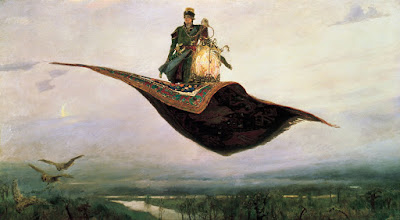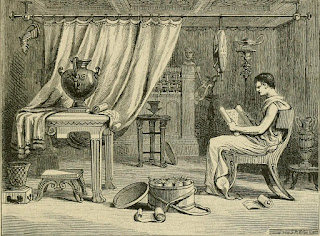A long time ago there was a charitable leader who wished for his great people to experience an abundance of health and safety. He and his family worked tirelessly to help their community and would go to great lengths to see it succeed. Often, this work was thankless and after a while, some of his family grew weary of it. When two of his sons left the community, the leader was left with his daughters, wives, and youngest son. In the time that followed, this group of dedicated public servants would work harder and longer than ever before. The slack was picked up and the community went on, though the leader's family found themselves even more tired than before. During this period, a great drought began in a neighboring village. The townspeople worried that this would spread and lead to famine, so they began to wonder what could be done to bring back the rain. They prayed and prayed, but no solutions could be agreed upon. Soon the leader gave the idea of digging a system of aqueducts to ensure a continuous flow of water for both communities. The problem with this solution was that the only person who was well versed in this kind of irrigation system was one of the sons who had left previously. More than that, it was rumored that the two sons had founded their own community on a hill a great distance away and were now building a great collection of city-states. Despite the hard work of the leader and his family to provide for and sustain the community that relied on them, they were unable to build these aqueducts and when the drought fell upon them it brought with it a great famine. So one day the leader sent a messenger to his two sons that had absconded. He pleaded with them to return and help save their city, in exchange for the promise that they would never have to work again in their lives. The sons were so busy working to develop their new city-state that they did not return to the community at their father's request. Soon the community fell apart and some of the members even went to join the sons.
Authors Note: I wanted to write a story that epitomizes the writing style that has been so prevalent in this weeks reading. As I had noted, the stories from Laos seem to be stripped of details and imagery. However, the themes and narratives involved are still abundantly clear. This story is loosely based around The Origin of Lightning, but the real adaptation comes in the writing style. The story had a mildly clear message but reads almost as if it is missing details that we are so used to having that color the stories that we read.
Bibliography: The Origin of Lightning, from
Laos Folk-Lore by Katherine Neville Fleeson.
Link.




Hey, Carl!
ReplyDeleteMan, the sons of the chief seem awfully self-centered. I realize that they're busy, but to completely blow off your dad seems extreme. I'm interested as to what could have happened if the village was able to figure out irrigation without the sons. Would they have survived the drought? Would the sons have been forced to come back, hoping to be accepted by the village they left?
Hi Carl,
ReplyDeleteWhat a story! I wonder what would have happened if the village prospered and the city states of the sons did not. Would the village let them return? The sons were so heartless! Also, how did the original story relate to lightning? The boys need to know that in life, hard work is almost always required to live. I can't believe they just left! That is sad that even after all the hard work the village faced, the village still didn't work out. :(
Hi Carl!
ReplyDeleteAt first, wouldn't have been able realized that this came from the Laos unit, even though I read the same story. The way you wrote this particular story is really unique, and reading your author's note, I can one hundred percent see where you were trying to go with this. I think this adaptation is really good, and you left a lot of similarities with the original. The writing style is what had the biggest impression on me. I know that you kept the plot pretty true to the original, but I wonder how the sons learned about the aqueduct system if they were the only ones in the village who knew about it. I found that with this type of writing, it get to the point much quicker, since actions are always a reflection of character. In your story, the reader can infer a lot about the characters and you don't need to waste time explaining each one in depth, which I really like. Great job!
Hey Carl,
ReplyDeleteI really noticed what you added in the Author's note about the story lacking color and details. I am genuinely impressed that you were able to replicate the writing style that you read in your weekly reading. It is hard for me to draw an opinion on the boys because they clearly were burnt out on the work, and sometimes that leads to resentment toward something you used to love. Still, I think I would always help my dad if he sincerely needed help.
Good luck,
Brady
Hi Carl,
ReplyDeleteIt amazing that you can strip the story of details and imagery and you are still able to deliver a good narrative and story. I personally enjoyed the story and the message it portrays. For some reason, I was reminded of the Roman city-states and their architecture (especially their aqueducts) when reading this story.
Great story, I look forward to reading more from you!
Hey Carl,
ReplyDeleteInteresting approach to your story for this week. I do see how the lack of detail does paint a different picture for the story. The message being mildly clear is spot on in regards to the overview this story. As a writer that always tries to do the most, this was eye-opening in a way. Thank you for creating a non-conventional story.
-Lance J